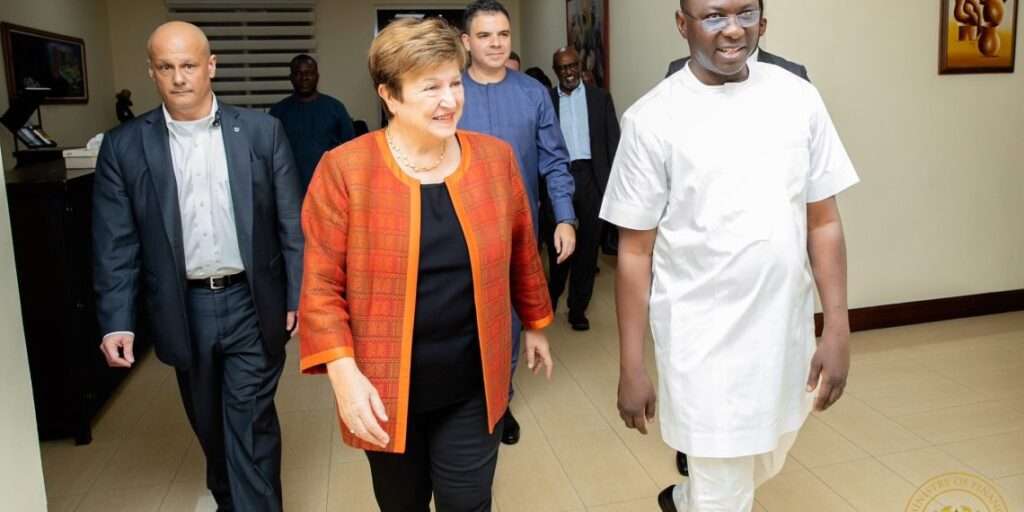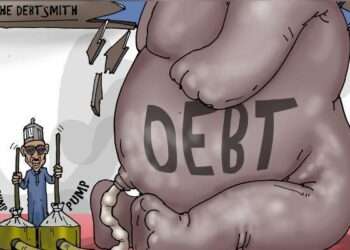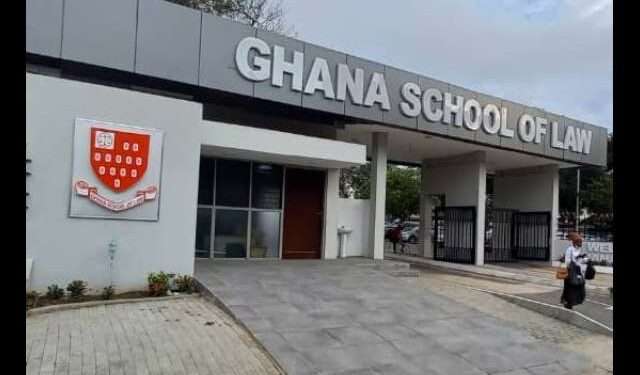In the high-stakes world of international finance, Ghana finds itself at a crossroads. With bilateral creditors scrutinizing a draft document, the nation’s debt restructuring journey takes a dramatic turn, promising hope yet shrouded in uncertainty.
Finance Minister Dr. Mohammed Amin Adam disclosed that Ghana’s bilateral creditors, via the Official Creditor Committee, have shared a draft document outlining Ghana’s debt restructuring plans among its members for review.
Dr. Adam suggested that this step could pave the way for a potential agreement on the Memorandum of Understanding (MOU) soon, provided that the creditors find the draft acceptable.
The Finance Minister said this at the press conference in Washington DC USA on the sidelines of the IMF/World Bank Spring Meetings.
“The Official Creditor Committee has shared the draft document with their members, and as soon as they share the document with us and we are okay with that, then we have an agreement.
“The IMF is not asking for a deal from the Bilateral Creditors before it goes to the board, but rather an agreement on the wording of the MOU, and that will be sufficient for the IMF to go to its board.”
Dr. Mohammed Amin Adam
Dr Amin added that authorities are very optimistic that Ghana can meet all the conditions needed for the IMF to go to the board in June this year.
Regarding the negotiations with Eurobond and commercial creditors, the Minister of Finance mentioned that they have made progress with the creditors and a deal will be reached soon.
He added, “Any deal that we reach with these commercial creditors should be in line with Ghana’s Debt Sustainability Analysis and we are working hard on that.”
The Minister noted that they are very optimistic that they will reach an agreement that would align with Ghana’s Debt Sustainability Analysis.“We are working to narrow the gap when it comes to what we initially proposed to the creditors.”
“We have provided a 33 percent discount, coupon rate of 5 percent, and we have 6 percent following that, and if you subject this to the threshold, you are supposed to achieve 55 percent.”
Dr. Mohammed Amin Adam
Navigating Ghana’s Debt Tightrope, Realism Amid Optimism
Ghana’s journey towards debt restructuring has been marked by a delicate balance between optimism and realism.
Recent developments, including the breakdown of negotiations following the IMF’s request for a Memorandum of Understanding (MOU) between the government and its bilateral and private creditors, underscore the complexities involved.
After a series of Staff-Level negotiations, Ghanaian authorities appeared optimistic about reaching a deal to address the country’s debt challenges.

However, this optimism was quickly overshadowed when the IMF unexpectedly demanded an MOU, adding a new layer of complexity to the process.
The Finance Minister’s assurance of optimism regarding meeting the conditions necessary for IMF approval in June reflects the government’s determination to navigate these challenges.
However, amidst this optimism, there is a need for a realistic assessment of Ghana’s debt sustainability.
While striving for agreements with creditors, it’s crucial for Ghana to maintain a realistic understanding of its financial constraints and obligations.
The gap between initial proposals and creditor expectations highlights the need for careful negotiation and compromise.
Transparency and accountability must remain paramount throughout this process. Ghanaian citizens deserve to be informed about the decisions and trade-offs involved in debt restructuring.
Moreover, the government must ensure that any agreements reached align with the country’s long-term economic interests and Debt Sustainability Analysis.
As Ghana continues its journey towards debt sustainability, it must balance optimism with realism.
While hopeful for a favorable outcome, it’s essential to approach negotiations with a clear-eyed understanding of the challenges ahead and a commitment to securing a sustainable financial future for the nation.
READ ALSO: Ghanaian Gospel Musician KODA Passes On





















